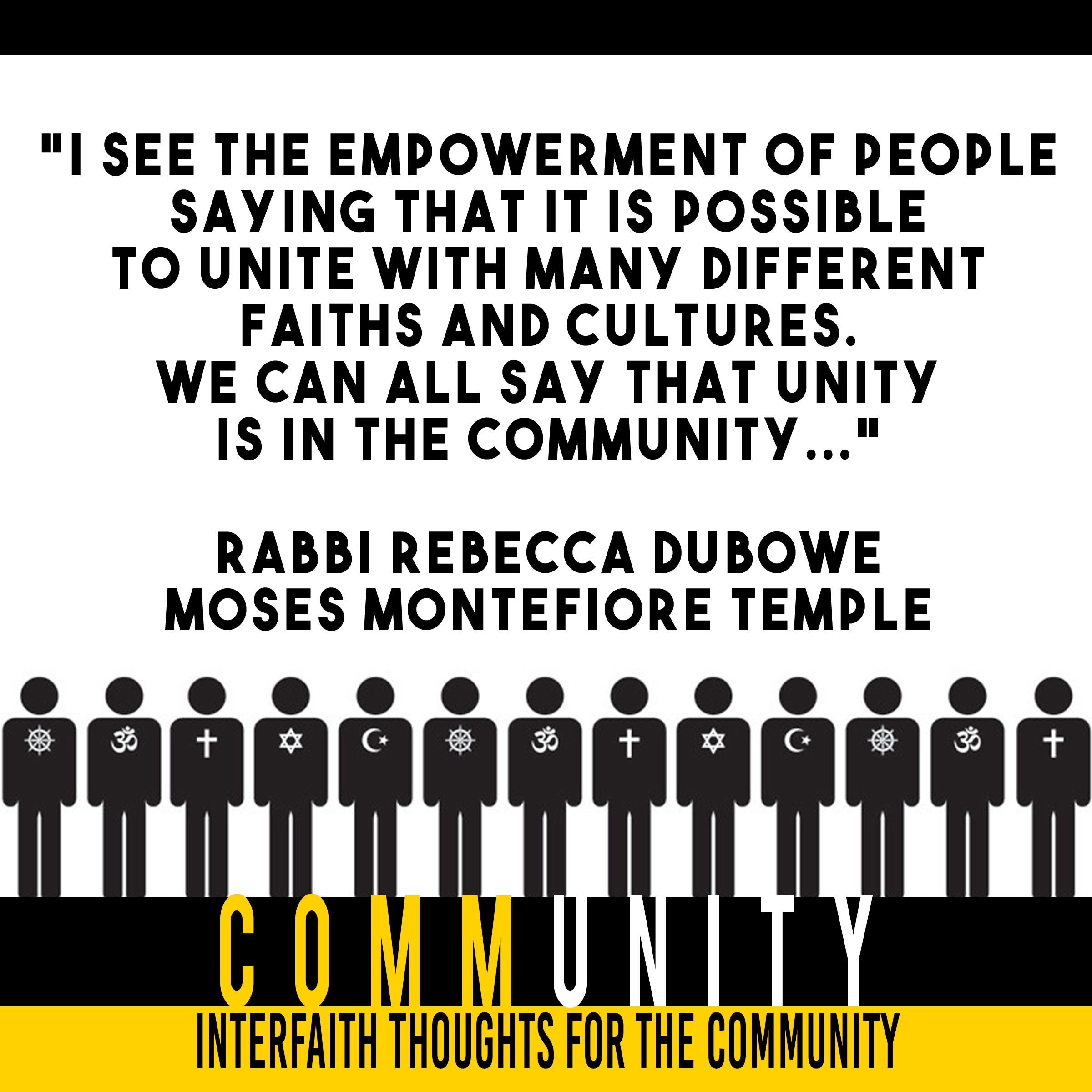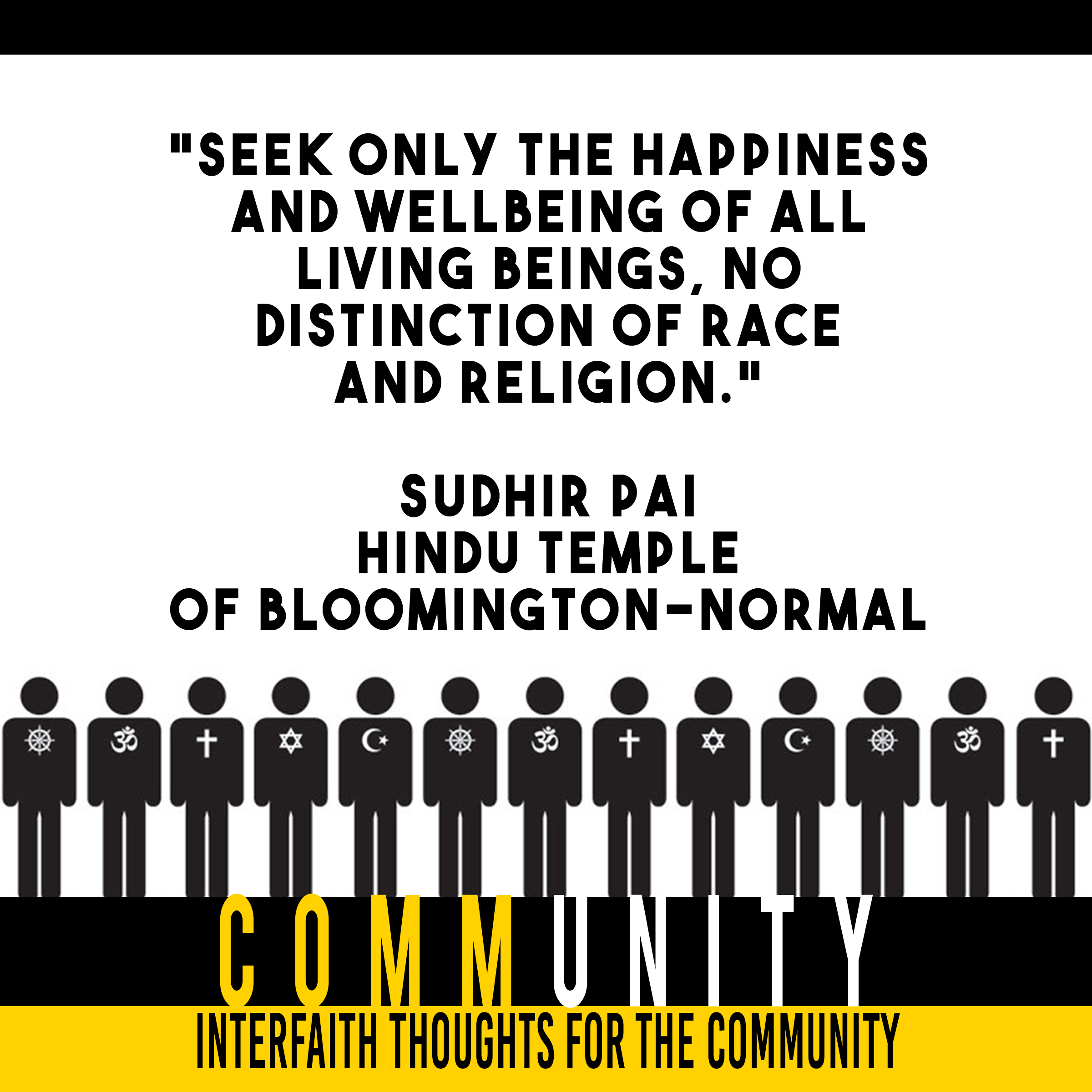Kevin Barlow
The Pantagraph
As co-chairwoman of the Not In Our Town Faith and Outreach Committee, Mollie Ward is sometimes surprised by the subject manner of prayer requests she receives from residents of Bloomington-Normal.
“It’s remarkable how often I get requests from people to just pray for peace,” she said Monday night. “Those requests come even when they are going through some terrible issues of their own.
"When I ask people what would you like me to pray for, the response I often get is for peace in the world and our country. It’s amazing that comes first.”
Ward was one of several faith leaders who organized an interfaith community service that drew about 300 people to First Christian Church in Bloomington. The group issued a statement to announce they were united in commitment to stand up and speak out in nonviolent ways for love and justice.
“We’re here tonight to demonstrate how we, who are all brothers and sisters with each other, can live and breathe together,” said the Rev. Jim Warren, the senior pastor at the church.
The event was organized to encourage unity among all faiths, said co-chairwoman of the service, Rabbi Rebecca Dubowe of the Moses Montefiore Temple in Bloomington.
“We believe that it is possible for all faiths to be together and share the same message of love among each other. This was spurred by the tragedy in Charlottesville," she said, referring to the Aug. 12 confrontation during a rally of white supremacists in Virginia in which one person was killed. "But the faiths that sustain us separately can come together to let us know that love is the most powerful force we have.
“The affirmation of people and the dignity of all people is the message we are hoping to deliver for our community,” said the Rev. Jackie Clement of the Unitarian Universalist Church of Bloomington-Normal.
“Right at the moment, we are all concerned about Texas," Clement said of the victims of Hurricane Harvey. "But on a regular basis, it is a matter of concern for my congregation and other congregations I visit, that it be clearly known in the community that there is a large body of people who are willing to stand in this community for justice and what is right.”
The Rev. Beth Rupe, the co-chairwoman of the Pro-Reconciliation Committee of the Christian Church in Illinois and Wisconsin, said the church is interested in raising awareness about racism in Bloomington-Normal.
“Love is going to be what overcomes racism,” she said. “As people of faith, we are called together to stand in love. We want to speak to unity and speak to the tradition and that we can do better as children of the Divine.”
The service included speakers, prayers and music from many faith traditions.
“I think it’s really great that the leaders of different religions can get together and talk about something that we all have in common and that is that we hate racism and we hate what is going on with racism in our world right now,” said Tammy Hoback of Bloomington.
A similar service was held in July 2016. At that time, the Not In Our Town organization hosted a prayer vigil following the shootings of police officers in Dallas, Texas.
“Events like this prove that different people with different viewpoints from different religions can gather with the idea of peace as a common thread,” said Bill Parker of Normal. “I’m proud that our towns can hold such an event.”




















